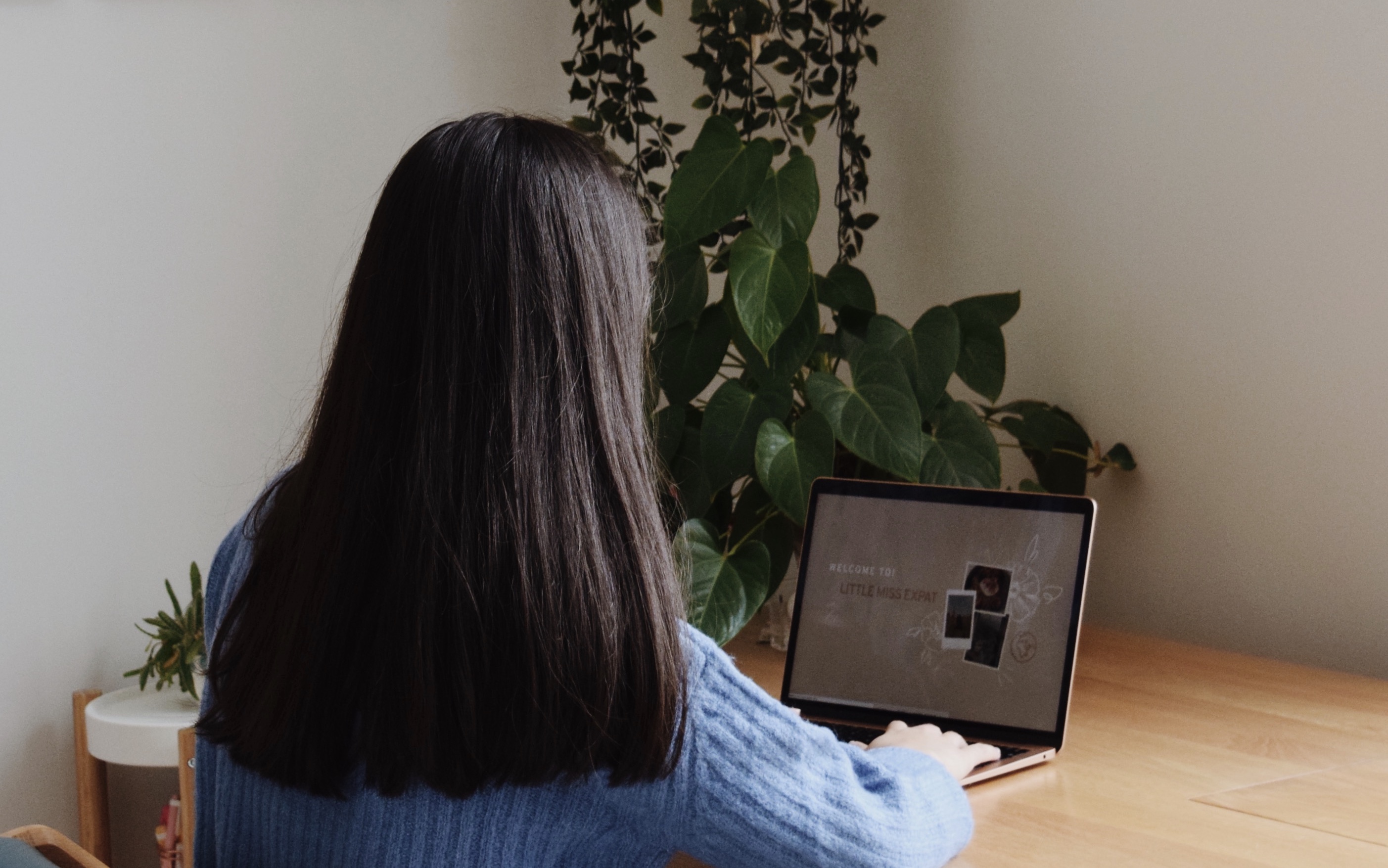For someone like myself who likes to be in control of a situation, everything happening around the world at the moment can seem a little… overwhelming. When we can’t control a situation, I believe the best thing that we can do, is to control our mindset – if we adapt our cognitive interpretation of the event we can receive the best possible outcome of an event. Most of the time this means thinking with a more optimistic perspective. But how do we actually do that? It’s easy enough for someone to tell you to be more cheerful, be more optimistic, look for the silver lining, but it’s easier said than done. In this post, I’m going to take you through what it means to have an optimistic outlook and how to cultivate one.

Having an optimistic outlook is not something you have to be born with! There are people whose genetics predispose them to a more positive mindset and socio-economic status can also make it easier to be more optimistic or pessimistic, but optimism can be learned! It’s something that if you build upon you can improve and make it an integrated part of your life – it’s scientifically proven!
‘Being more optimistic’ is such a broad phrase; it’s impossible to derive any meaning from it. What most people don’t actually know is that optimism can actually take 5 different forms: predictions, attention, intentions of others, self-worth, and potential for change.
PREDICTIONS
With any situation, we think about we can either expect the best or the worst. It’s good to be somewhere in the middle of the spectrum because at the extreme levels expecting the best can leave you overconfident and unprepared, and expecting the worst can leave you depressed and anxious for what’s to come.
Changing Our Predictions
It’s okay to predict future outcomes, but this shouldn’t be something you fixate on all the time! Instead, understand that your life will be a healthy balance of successes and failures. Think about the successes that got you where you are right now, but it’s important to change the way you think about them. It’s better to think of the work and effort that got you to that success rather than the labelled qualities you possess such as ‘intelligence’ or ‘brilliance’ that got you to this place. Thinking about the actions that you took and the work that paid off will leave you more confident in your skills and less anxious about future outcomes.
It’s also important to reshape the way you think about failures; think about the failures that made you learn something and allowed you to end up where you are now. Without failures, you wouldn’t be the person you are now.
ATTENTION
Where we focus our attention is extremely important because this is what our mind dwells on and what impacts our other thoughts and emotions. We can either focus on what we have or what we wish we had. This is where we often hear that phrase ‘glass half full or half empty’
Changing our attention
Find a positive in everything! I think that a great way to become a ‘glass half full’ kind of person is to find a positive in everything no matter how trivial it is. For example, I’m off school now for online learning due to COVID-19, at first, this really upset me, but I was able to think about the positives such as being able to wake up a couple of hours later and having more time to work on my blog. Or back when I first moved to Dubai and really hated the school I was in, I would get through the weeks by thinking of really small trivial things that I could look forward to, such as an afterschool activity I had that day, a friend I was going to facetime, or a food I was going to eat. Being able to pick out the best from a bad situation is a really important and highly useful skill!
INTENTIONS OF OTHERS
Optimism can not only affect what we think of ourselves but also our attributions of other’s behaviors. If someone does something that annoys us, we can either assume that they’re doing it because they’re purposely trying to annoy us or maybe just because they’re stressed and can’t think straight. It’s all about what we attribute to other’s intentions.
Changing how we view other’s intentions
The biggest thing here is empathy! Normally our defense mechanism, when someone does something to hurt our feelings, is to assume the worst about them, we say ‘oh they’re just a mean person’. However, by doing this we fail to think about the situation they may just be having a really bad day or found out some terrible news. After all, when we have a bad day we act in the same way! There’s actually a psychology term that summarizes this, it’s called the fundamental attribution error. It basically says that when we judge someone else’s behavior we place too much weight on their disposition, we say ‘oh they’re just mean’ and too little weight on the situation, they could be having a bad day. Be aware of this error and try to empathize with others!
SELF-WORTH
Not only is optimism about how we view other people, but how we believe others view us. We can value ourselves as useless and boring, or we can value ourselves as lovable, driven, and valuable.
Changing views on self-worth
Focus on yourself, on who you want to be for YOURSELF not for OTHERS. Scientific studies show that people who are happier tend to have similar ‘ideal selves’ that is who they strive to be, ‘real selves’ where they are at the moment, and ‘selves as other people see them’. When these three concepts reflect the same values and ideals, it denotes a happier person. So focus on finding who you really are instead of creating multiple selves for different situations. Once you’re happy with who you are, the way other people view you will have a much smaller impact on you.
POTENTIAL FOR CHANGE
In my eyes, this is the one that makes the biggest difference! Potential to change is how much we view a bad situation as concrete and unchangeable. A pessimistic person would see this situation and say ‘oh well, there’s nothing I can do to change that’ but an optimistic person would say ‘maybe I can work to make this better’ or ‘maybe if I think about the positives it won’t seem as bad!’
Changing the potential for change
Don’t be scared of your ideas! The optimistic person will see the potential to make a situation better and this doesn’t always have to be done in a conventional way! Don’t be scared of what others will think of the way you’re going about making change. Another way to imagine change and make the best of any situation is to broaden your horizons: read more books, watch more videos, listen to more podcasts! The person who has experienced diverse perspectives will be the one who is more likely to think up a creative solution to change the situation.
I hope that this post has given you a more in-depth explanation of what optimism is and how you can become more optimistic! I’ve created a graphic swipe-through that condenses all of this information on my Instagram (@Little.Miss.Expat) so be sure to check that out! Let me know what you think of this post in the comments.
See you next week!

